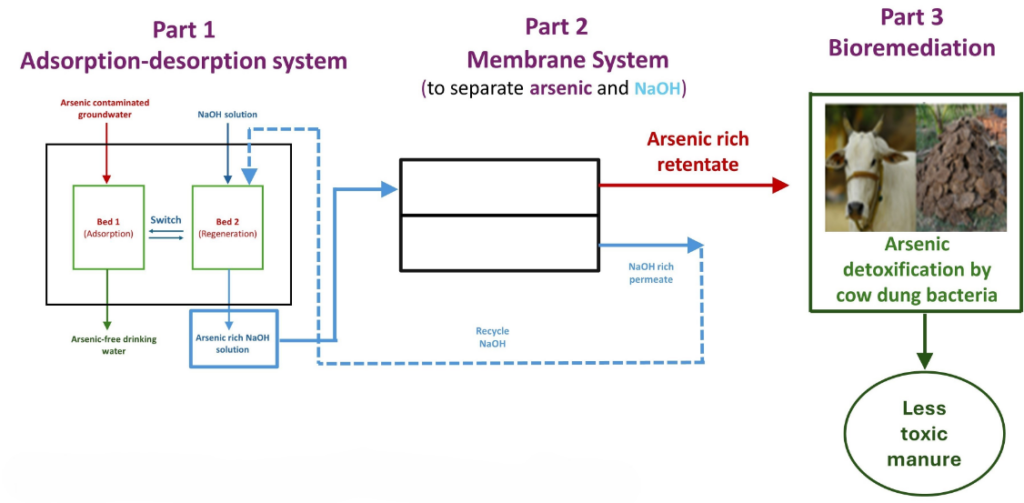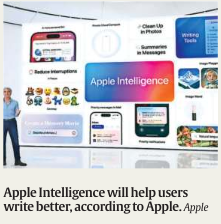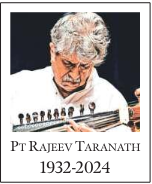12 June 2024 : Daily Current Affairs
1. Bihar’s call for special category status
(Source – The Hindu, International Edition – Page No. – 10)
| Topic: GS2 – Indian Polity – Federal Structure |
| Context |
|
Bihar’s Demand for Special Category Status
- The Chief Minister of Bihar has reiterated the State’s demand for special category status from the Central Government.
- This status would increase the amount of tax revenues Bihar receives from the Centre.
- The demand is significant as the ruling party at the Centre depends on support from the Chief Minister’s party to maintain power.
| Special Category Status: An Overview |
|
Reasons Behind Bihar’s Demand
- Bihar’s politicians, including the current Chief Minister, have long demanded special category status due to the State’s economic backwardness.
- Bihar has one of the lowest per capita incomes in the country and lags behind the national average in several human development indicators.
- The State’s fiscal situation has been adversely affected by the bifurcation, loss of industries to Jharkhand, insufficient water resources for irrigation, and frequent natural disasters.
- A recent caste-based survey indicates nearly a third of Bihar’s population lives below the poverty line.
Central Government’s Stance
- Successive governments have been reluctant to grant special category status to Bihar and other States due to the financial burden on the Centre.
- Increased devolution of taxes from 32% to 42% of the total divisible pool based on the Fourteenth Finance Commission’s recommendations is cited as a reason against further special status grants.
- The demand for special category status is seen by some as a strategy by State governments to secure more funds from the Centre.
Potential Political Ramifications
- Granting special category status to one State might encourage other States to demand the same, increasing the Centre’s financial burden.
- Political considerations play a significant role in granting special status; States with stronger political leverage may secure more funds.
- Political parties may promise special status to States as a strategy to gain or retain power, leading to competitive populism and potentially worsening the Centre’s finances.
Analysis of Bihar’s Need for Special Category Status
- Politicians at the State level have an incentive to secure more funds from the Centre to increase their spending power.
- Many other States, including Andhra Pradesh and Odisha, have also demanded special category status for similar reasons.
- The primary argument for Bihar’s demand is its economic backwardness, justifying the need for additional funds to uplift the poor and invest in infrastructure.
- The Bihar government estimates that special category status would provide an additional 2.5 lakh crore rupees over five years for welfare projects.
Counter Arguments
- Some analysts argue that Bihar’s economic backwardness does not justify increased Central funds, as it may incentivize poor policies in less developed States and penalise more developed States with better policies.
- Historical factors such as poor rule of law have contributed to slow growth and high poverty in States like Bihar and Uttar Pradesh.
- Despite this, Bihar is now one of the fastest-growing States in India, with significant improvements in per capita income and overall economic size in recent years.
- In 2022-23, Bihar’s gross domestic product grew by 10.6%, higher than the national average of 7.2%, and its per capita income grew by 9.4% the previous year.
Long-Term Solutions for Bihar
- While additional funds from the Centre might provide short-term relief, Bihar’s long-term economic prospects depend on strengthening the rule of law.
- Improved governance and regulatory environment can attract investments and sustain economic growth.
- Analysts suggest that rather than relying on increased Central funds, Bihar should focus on enhancing its institutional and legal framework to boost its economy further.
Conclusion
- The demand for special category status by Bihar highlights the ongoing debate on resource allocation and economic development in India.
- While the special category status can provide financial support, the key to sustainable development lies in robust governance and policy reforms.
- Addressing the root causes of economic backwardness through improved rule of law and investment-friendly policies can ensure long-term growth and prosperity for Bihar.
| Practice Question: Discuss the implications of granting special category status to states in India, considering both economic and political factors. (250 Words /15 marks) |
2. New portable atomic clock offers very accurate timekeeping at sea
(Source – The Hindu, International Edition – Page No. – 7)
| Topic: GS3 – Science and Technology |
| Context |
|
Analysis of the news:

The 3U, 19-inch rackmount iodine optical clock occupies a volume of 35 litres and consumes less than 100 W
- Atomic clocks, integral to GPS, use atomic transitions for precise timekeeping, typically employing Cs-133 atoms.
- Cs-133 clocks, defining the second since 1967, resonate at 9,192,631,770 Hz, ensuring high accuracy with minimal time loss or gain.
- Optical atomic clocks use lasers and optical frequencies, like visible and UV light, for even greater precision.
- These clocks leverage higher frequencies and narrower linewidths for improved accuracy, with strontium being a common atom used.
- Portable optical atomic clocks have been developed to balance size, robustness, and accuracy, crucial for applications outside labs.
- A study in Nature introduced a 35-litre, 26 kg portable optical atomic clock using molecular iodine, miniaturised spectrometer, laser system, and frequency comb.
- Initial tests showed high stability and lower long-term drift compared to traditional atomic clocks.
- At sea, the clocks maintained stability despite motion and environmental changes, proving their robustness.
- The new portable optical clocks, while slightly less accurate than lab versions, lose or gain only a second every 9.1 million years.
- These advancements enable precise maritime navigation, seismic monitoring, and scientific research, potentially benefiting space exploration and testing relativity theories.
| What is an Atomic Clock? |
|
What is an Atomic Clock?
Advantages of Atomic Clocks Exceptional Accuracy:
|
| Practice Question: Discuss the significance of portable optical atomic clocks in enhancing maritime navigation and scientific research. (150 Words /10 marks) |
3. Donanemab: A New Ray of Hope for Alzheimer’s Patients Gains FDA Advisory Panel Support
(Source: Indian Express; Section: Explained; Page: 13)
| Topic: GS3 – Science & Technology |
| Context: |
|
Analysis of News:

What is Alzheimer’s Disease?
- Alzheimer’s disease is a progressive neurodegenerative disorder that affects the brain, leading to memory loss, cognitive decline, behavioral changes, problems with words in speaking or writing, poor judgment, changes in mood and personality, confusion with time or place, etc.
- Alzheimer’s disease is the most common cause of dementia, accounting for 60-80% of dementia cases.
Balancing Benefits and Risks:
- Donanemab is specifically designed for early-stage Alzheimer’s patients, those with mild cognitive impairment or mild dementia. The drug has shown significant clinical benefits, meaning it can slow disease progression and help patients retain their functions longer.
- While the drug can cause amyloid-related imaging abnormalities (ARIA) such as brain bleeds and seizures, these events were mostly non-serious and resolved after discontinuing the therapy.
- The FDA believes these risks can be mitigated through proper labeling, clinical monitoring, and post-authorization studies, highlighting the drug’s potential in providing meaningful treatment for AD.
Mechanism of Action and Clinical Trials:
- Donanemab, like two other recently approved Alzheimer’s drugs, is a monoclonal antibody targeting amyloid beta proteins in the brain, a hallmark of Alzheimer’s disease.
- In a phase 3 study, donanemab was shown to slow cognitive decline by 35.1% over 76 weeks in early Alzheimer’s patients. This result was based on a study involving 1,736 patients, with 860 receiving the drug until the amyloid beta plaque was cleared.
- Although the main adverse effects were brain swelling and bleeding, most cases were asymptomatic, with only three treatment-related deaths reported.
Significance of the Breakthrough:
- The approval of donanemab is particularly important as the global population ages and the prevalence of Alzheimer’s disease rises. In India alone, an estimated 5.3 million people currently live with dementia, a figure expected to increase to 14 million by 2050.
- Experts emphasized the growing need for such drugs, particularly in developing countries with large populations.
- Despite the high cost of these treatments, which raises ethical and financial concerns, they offer valuable additional years of quality life for patients.
Future Prospects and Cautious Optimism:
- The cautious optimism surrounding donanemab mirrors the reception of lecanemab, another Alzheimer’s drug developed by Biogen.
- Despite concerns, lecanemab demonstrated a slowing of cognitive decline with fewer side effects.
- Donanemab’s approval represents a much-needed innovation in Alzheimer’s treatment and could pave the way for more effective therapies in the future.
- While the high cost and potential risks necessitate careful consideration, the benefits of such treatments in managing Alzheimer’s disease are undeniable.
| Practice Question: Evaluate the significance of the FDA advisory panel’s support for donanemab, a new Alzheimer’s therapy, in the context of global healthcare. Discuss the potential benefits and risks associated with its use, and the ethical considerations in making such expensive treatments accessible, especially in developing countries with a high prevalence of dementia. (250 words/15 m) |
Prelims Facts
1. UNSC endorses resolution to end war on Gaza
(Source – The Hindu, International Edition – Page No. – 1)
| Context |
|

United Nations Security Council:
- The United Nations Security Council (UNSC) is one of the six principal organs of the UN, established in 1945 to maintain international peace and security.
- Comprising 15 member states, including five permanent members with veto power (USA, UK, Russia, China, France) and ten non-permanent members elected for two-year terms.
- The UNSC has primary responsibility for the authorization of military action, imposition of sanctions, and establishment of peacekeeping operations.
- It operates through meetings and resolutions, with decisions requiring nine affirmative votes and no vetoes from the permanent members.
- The council addresses a wide range of issues including armed conflicts, terrorism, nuclear proliferation, and humanitarian crises.
- UNSC resolutions are legally binding on member states and carry significant political weight globally.
- Despite its central role in international security, the UNSC often faces criticism for its structure, particularly the veto power of permanent members, which can hinder swift and effective action.
2. Lt. Gen. Upendra Dwivedi to take over as Army chief
(Source – The Hindu, International Edition – Page No. – 1)
| Context |
| Lieutenant-General Upendra Dwivedi has been appointed as the next Chief of the Army Staff by the Union government, succeeding General Manoj Pande on June 30.Dwivedi, currently serving as Vice Chief, brings extensive command experience, having held key positions in the Army. |

Selection of Chief of the Army Staff (COAS):
- The appointment of the Chief of the Army Staff (COAS) in India is based on seniority and merit.
- The Government of India selects the COAS from among the senior-most eligible Lieutenant Generals in the Indian Army.
- The selection process involves consideration of the officer’s seniority, service record, and performance in various command and staff appointments.
- The Ministry of Defence and the Prime Minister’s Office play crucial roles in the selection process.
- The decision is ultimately made by the Appointments Committee of the Cabinet (ACC), chaired by the Prime Minister.
- Once appointed, the COAS serves a tenure of three years or until the age of retirement, whichever comes first.
- The selection process ensures a smooth transition and continuity of leadership within the Indian Army’s highest ranks.
3. IISc develops method to remove heavy metal contaminants from groundwater
(Source – The Hindu, International Edition – Page No. – 3)
| Context |
|

Analysis of the news:
- Environmentally friendly disposal: The novel process ensures sustainable and eco-friendly disposal of removed heavy metals, reducing environmental impact.
- Prevents re-contamination: By addressing the issue of heavy metal-rich sludge potentially re-entering groundwater, the method helps prevent re-contamination.
- Health benefits: Efficient removal of heavy metal contaminants from groundwater improves water quality, reducing health risks associated with arsenic and fluoride exposure.
- Scalability: The technology’s deployment and testing in rural areas demonstrate its potential for scalability and applicability in addressing groundwater contamination issues nationwide.
4. UN declares 2025 the Year of QuantumScience
(Source – The Hindu, International Edition – Page No. – 7)
| Context |
|
Analysis of the news:
- The United Nations has designated 2025 as the ‘International Year of Quantum Science and Technology’ to increase public awareness about quantum science and applications.
- The initiative, proposed by Mexico in May 2023, received widespread support with nearly 60 countries co-sponsoring the resolution.
- Ghana submitted a draft resolution to the UN General Assembly, supported by over 70 countries, leading to its official proclamation on June 7.
- The timing coincides with the upcoming centenary of Werner Heisenberg’s groundbreaking paper on quantum mechanics.
- Endorsed by prominent scientific unions, the proclamation aims to highlight the significance of quantum technologies in various fields.
- India announced a ‘National Quantum Mission’ in April 2023, focusing on quantum computing, communication, sensing, and materials, with a budget of Rs 6,000 crore.
- Quantum computers, though not yet fully operational, are expected to revolutionise electronics, clean energy, and drug development.
- The UN encourages individuals, institutions, and governments to utilise 2025 to promote awareness about quantum science.
- Global initiatives and events, including an opening ceremony in Berlin on January 14, 2025, are planned to engage diverse audiences in understanding quantum science and technology.
5. Apple Unveils Advanced AI Integration with Apple Intelligence at WWDC 2024
| Context: |
|
Analysis of News:

What is Apple Intelligence?
- Apple Intelligence combines the capabilities of generative AI models with personal context to deliver personalized intelligence. Unlike traditional AI tools, Apple Intelligence aims to understand user behavior and generate appropriate responses based on this understanding.
- It functions similarly to OpenAI’s ChatGPT but with a heightened level of contextual awareness, allowing it to know the user’s likes, dislikes, online preferences, and keep track of their calendar.
- Running on Apple Silicon, it can comprehend and create language and images, work across applications, and simplify and enhance everyday tasks.
Capabilities of Apple Intelligence:
Writing and Communication Enhancement
- Apple Intelligence aims to improve users’ writing and communication. It introduces system-wide writing tools built into iOS 18, iPadOS 18, and MacOS Sequoia, allowing users to write, rewrite, proofread, and summarize text seamlessly across various applications, including third-party apps. For instance, the rewrite feature can present different versions of a text, adjusting the tone to suit the audience and task.
Email Management and Creative Expression
- The new AI tool simplifies email management by highlighting the most urgent emails and summarizing them without requiring users to open them. Additionally, it fosters creative expression through a feature called Image Playground, enabling users to create images quickly in styles such as animation, illustration, or sketch. An image generator can also create emojis based on user prompts.
Enhanced Search Functionality
- Apple Intelligence enhances the search functionality on iPhones, allowing users to search for pictures using natural language prompts, such as “Katie with stickers on her face.” This capability extends to videos, enabling users to find specific moments within clips with ease.
6. Pandit Rajeev Taranath: Maestro of the Sarod and Distinguished Scholar Passes Away at 92
| Context: |
|
Analysis of News:

Recognition and Legacy
- In recognition of his immense contributions to Indian classical music, Taranath was honored with the Sangeet Natak Akademi Award in 2000 and the Padma Shri in 2019.
- His legacy as a virtuoso sarod player, scholar, and educator continues to inspire generations of musicians and enthusiasts alike, leaving an indelible mark on the world of Indian classical music.





